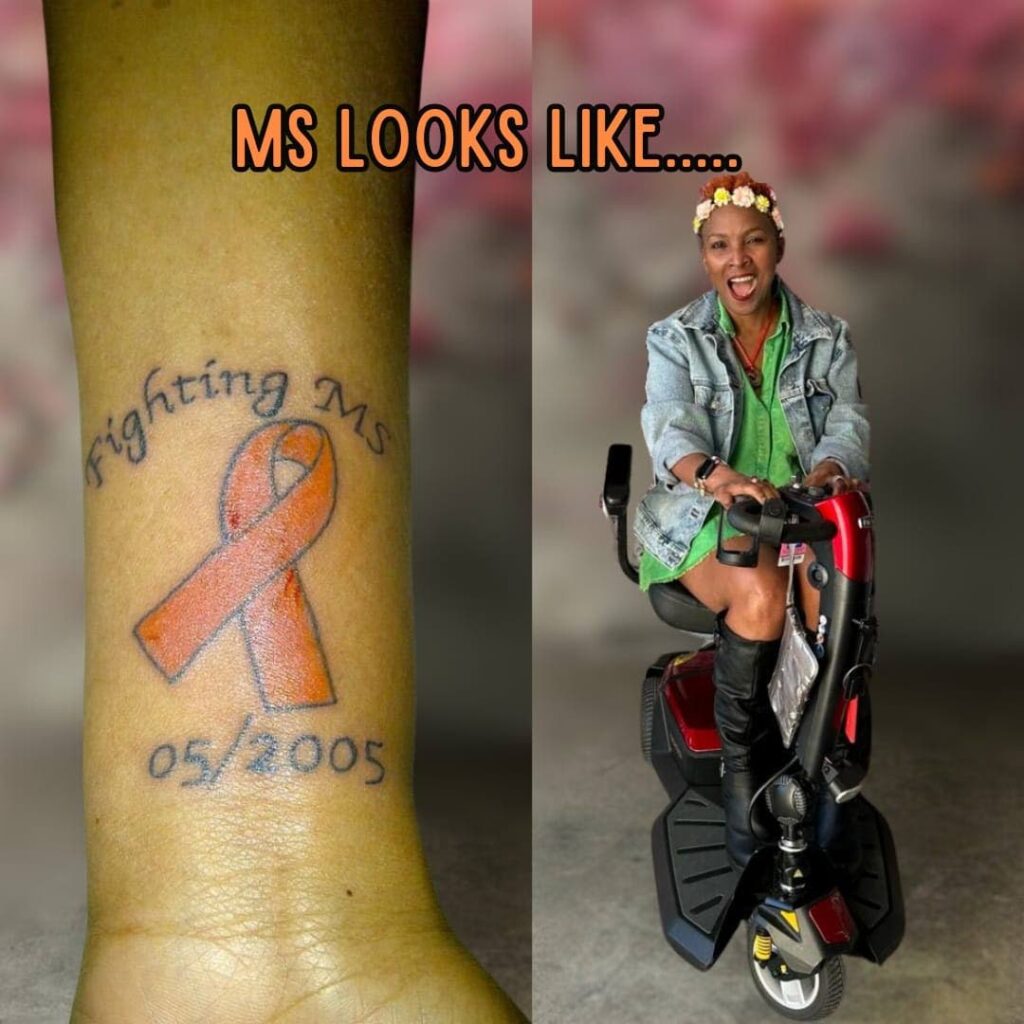Self-awareness, key to understanding MS

STACEY SAMUEL-O'BRIEN
March was Multiple Sclerosis (MS) Awareness Month.
In the US, this is when numerous “MS Walk” events kick off to raise funds for much needed clinical research and care. The events are also great opportunities to make connections.
Years ago, I attended a programme sponsored by the MS Society of Atlanta and it was the first time that I was around other people who had MS too. There’s something gratifying about talking to someone who really understands and may have shared your experiences. And I’m happy if sharing my story helps just one other person living with the disease, to understand that life need not stop because of the diagnosis.
There is no cure for MS and what exactly causes it is still unknown. Speculation runs from its being environmental to genetic to a vitamin-D deficiency – there are many trains of thought.
I believe that is why there’s no cure. How do you solve a problem if you do not even know the root of that problem?
I was lucky in terms of my “time to diagnosis” because it happened in five months. I’ve heard of people experiencing symptoms or “weird things” happening to their bodies for years before finally receiving an accurate MS diagnosis.
Fortunately, nowadays diagnoses are happening faster and there are also many medication options available to patients.
MS affects everyone differently. While there are underlying similarities from patient to patient, there is just no telling what course the disease might take for each person and symptoms vary. For instance, some, like me, suffer from physical dysfunction; other people experience cognitive “fog” where they cannot focus clearly; while others complain of excruciating nerve pain.
It is also referred to as an invisible disease. In my last column, I talked about invisible disabilities. Well, MS symptoms can also fall into this category and MS patients have been “accused” of not looking sick. Crippling fatigue and/or pain that renders one unable to function cannot be seen by others, but they are surely felt by the person who has to take a day off!
Nonetheless, I’ve heard people say that they were glad that they were diagnosed with MS because it forced them to reflect on their lives and shift their focus to things that were important. The diagnosis ultimately made them take stock of their lives and change the way they were living it.
That is not me. I have never thought that my diagnosis was a good thing; in fact, I think it’s quite awful. Months after my diagnosis, my mother said, “Well, you didn’t buy it, so you cannot return it,” and so I’ve learned how to live and cope with the disease.
But rather than change my life because of the disease, I work hard to maintain the life I’ve lived and loved, in spite of it.
I will say that having MS has made me keenly aware of my body and how it functions and in some ways, I’ve had to figure out how to compensate for what I’ve lost. For example, I have weakness in my left foot and it drags when I walk, which has contributed to my falling. As a result, I sometimes swing my left leg out and around to place it where it needs to be to take a step. I’ve learned to listen to my body and know when to stop, rest, or push through.
Self-awareness didn’t happen overnight and I underwent much trial and error in learning my limitations. For example, I know now that I probably shouldn’t attend most breakfast fetes, after being rendered completely dysfunctional by the scorching TT sun the first time (heat is an MS patient’s kryptonite).
I’ve also learned that it’s in my best interest to personally research an activity beforehand (especially in TT), as I ask questions and need information that able-bodied people might not consider. That’s how I can still thoroughly enjoy Carnival on my terms (I tirelessly research fete venues, terrains and times, J’Ouvert band routes, everything).
Still, living with a debilitating, progressive disease for which there is no cure is never easy; no amount of preparation can change that. I have rough days and/or moments that sometimes coincide with the realisation that I’ve lost the ability to do something.
But I think this is normal; it’s akin to mourning any other loss. However, I do not let those rough days consume me.
They say it takes a village to raise a child. For me, that rings true in dealing with illness too. With the support of loved ones and my community, I get through those rough times.
My multiple-sclerosis diagnosis has irrevocably changed my life, and the truth is, one day it may render me immobile.
But, until that day, I will continue to lime and “like mehself” as only I can.
Multiple sclerosis (MS) is a debilitating autoimmune disease that affects the central nervous system.
In MS, the body’s white blood cells attack the protective covering of nerve fibres. When nerve fibres become exposed, electrical messages between different parts of the body and the brain are no longer transmitted effectively. MS can lead to sensory, cognitive, digestive and muscular issues.
It is a degenerative disease for which there is no cure.


Comments
"Self-awareness, key to understanding MS"